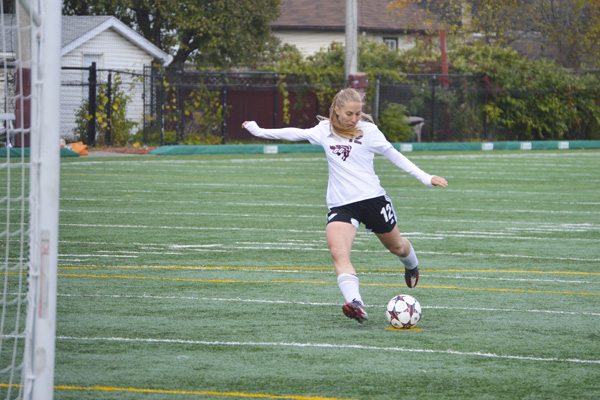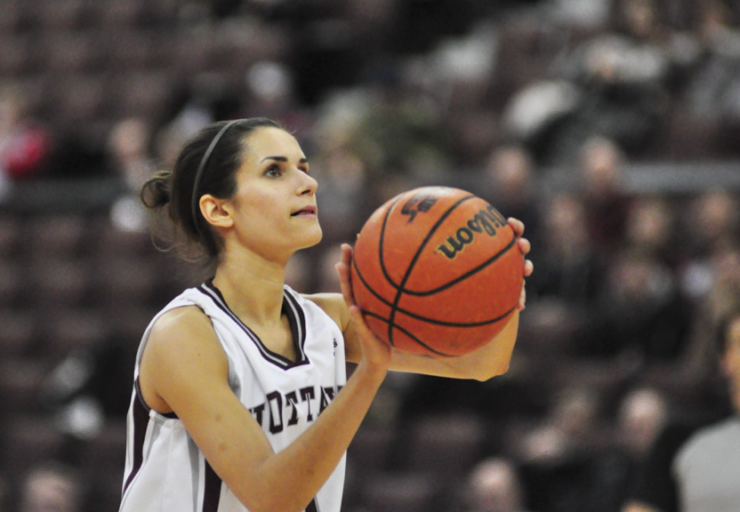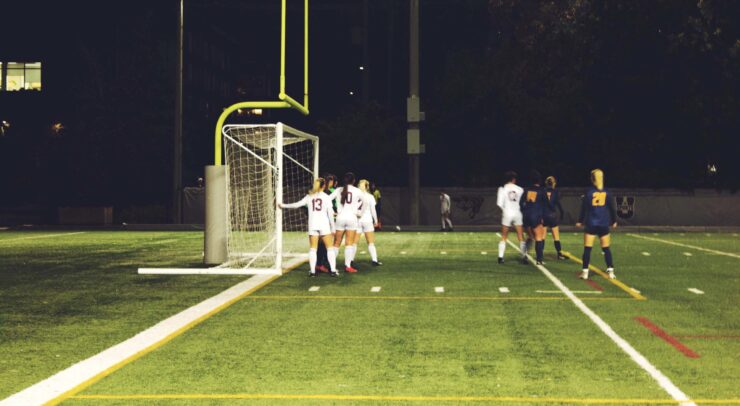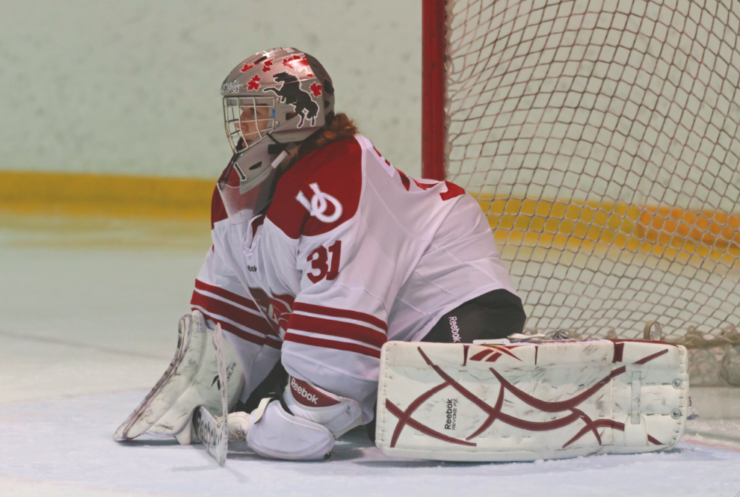Longtime Gee-Gees reflect on their loss to Carleton now that their 20-year undefeated streak has come to an end
You have to feel a bit for this year’s University of Ottawa women’s soccer team.
When their program was founded in 1994, the Gee-Gees started by remarkably stringing together an eight-year, 17-game win streak against their cross-town rivals, the Carleton Ravens. A tie game in 2002 put an end to that, but an incredible, unbeaten streak remained for another 11 years. Ottawa’s good fortune finally ran out this year on Oct. 12, when Carleton defeated them 4–1, ending the unbeaten streak after a total of 20 years and 41 games. Like a house of cards, the collapse of the streak was inevitable, but that didn’t take away any of the sting.
“The quote is always, ‘You don’t want to be the first team that loses to Carleton,’” said Gee-Gees’ fifth-year captain Krista Draycott, who added with a laugh, “Which I guess happened this year.”
As the first Ottawa captain to forfeit a loss to the Ravens, Draycott admitted the defeat—the only Gee-Gees loss this regular season—was hard to take.
“I think it affected me a lot more on a personal level than it did the rest of the team,” she said. “Since I’ve been around for five years and every year we haven’t lost until now, and it being my last year playing against them, it was disappointing to have experienced that.”
Draycott said she took solace in the fact that while the streak was impressive, it was never the team’s main objective and the priority each year was to advance as far as possible.
“Our end goals were always a provincial or national championship or just success throughout the season,” she said. “We realized that we lost a game, and it did end the streak, but that was not our end goal.”
Ottawa’s head coach Steve Johnson has been with the program since its founding. In the early years, the scores were routinely lopsided in the Gees’ favour. Around 2002 marked the start of a more competitive era, in which the unbeaten streak proved increasingly difficult to maintain.
“We were winning or tying them probably against the odds that we would continue to,” he said. “During that period we were losing to teams that were finishing below Carleton in the standings.”
Over the years, various generations of U of O teams had to come through in critical moments to preserve the streak. Johnson vividly remembers one such game from 2002, when an unlikely hero came through for the garnet and grey big time.
“Due to injuries, we found ourselves short of players by the midseason. So I went back to a player who tried out for us in training camp and had been released,” he said. “We had a meeting and I asked her to come back to the team. I said that she would not just practise, but she would be dressing in the upcoming game against Carleton.”
The Gees’ 16-game winning streak versus the Ravens was at stake late into the scoreless match. With just 10 minutes to go, Johnson sent Tammie Hayes onto the pitch.
“We gave her an opportunity,” he said. “She goes in and with five minutes left, she scores the winning goal.”
In 2006, Ottawa’s now unbeaten streak against Carleton looked to be in serious jeopardy. For the first time in program history, the Ravens finished ahead of the Gee-Gees in the standings. Furthermore, Ottawa had not been able to get a win against Carleton during the regular season.
“We had to meet up with them in the second round of the playoffs at Carleton,” said Johnson. “Despite having tied them twice, we prevailed against them 1–0.”
As the unbeaten streak extended year after year, defying the odds, the pressure only mounted on both sides to either end it or keep it going. It became a concern for both teams, and trying to manage the streak was a challenge for the coaching staff.
“It became a burden,” said Johnson. “There’s been a number of games where we had to come back and tie the game, where our players would be looking at each other on the bench just a little bit scared thinking, ‘Is this the day, is this the day?’ And then all of a sudden we would go and score and we would look down at Carleton’s bench and see in their eyes, ‘again we’ve lost, or again we’ve tied, and again we haven’t done it.’ Both benches were extremely aware of everything leading up to and, incredibly so, everything happening during those 90 minutes.”
Draycott agreed that the streak became a burden due to the psychological impact. Players could be more likely to panic and not stay composed when things went badly, and the anxiety was an issue that had to be dealt with on top of the Xs and Os.
“As a team, we wanted to remind ourselves to stay composed on the field,” she said. “If we went down a goal, we wanted to be able to turn around and say, OK, we can do this.”
However, that pressure has now been lifted from the team with the end of the streak. Though the loss was a disappointment, Johnson said the team can now begin approaching games against Carleton with a more natural mindset.
“It will be a game now where we’re playing to win instead of trying not to lose because we’re protecting a streak.”
This was Draycott’s last season of Canadian Interuniversity Sport (CIS) eligibility, so she exits the rivalry having witnessed the first defeat. Nevertheless, she was a major contributor to the streak’s extension in her years on the team and reflected on what it means now that it’s over.
“It goes to show the strong foundation of the program and what (coach Johnson) has built since the beginning,” she said. “We have more players wanting to come play for the U of O because they know how successful the program is.”
For Johnson, while the streak cannot compare to winning a championship, it does represent a victory for the program.
“It is an indication of the strength and quality of the players that have come through wearing Gee-Gee colours for 20 years,” he said. “And it’s a source of pride.”






